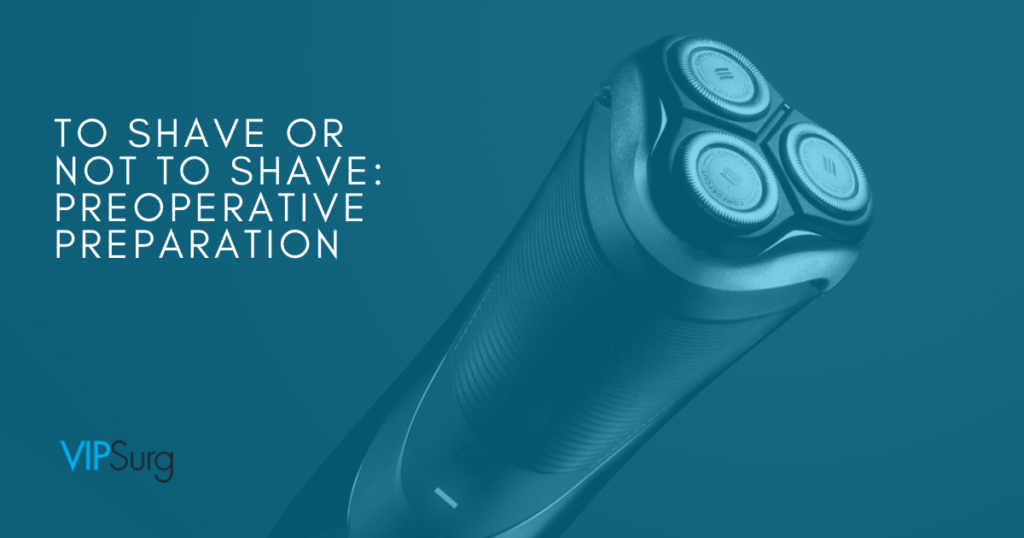Whether it’s on TV or experience from your own surgery years ago, common (and now proven incorrect) knowledge tells us that shaving the surgical area makes surgery easier and minimizes impediments. Recent research, over the past 10 or 20 years, has determined that there are specific rules we should follow when it comes to shaving the surgical area to minimize the risk of postoperative complications. Studies have shown the risk of Surgical Site Infection (SSI) is higher in patients with a shaved surgical area versus those that that were not shaved.

Don’t shave with a razor or wax the area
You shouldn’t shave the area with a traditional razor. The bacteria living in the hair follicles can actually cause a skin infection known as folliculitis if you happen to nick the skin with the razor (microscopic skin breaks are very common with razor blades). Further, for most procedures, we do not need perfectly smooth skin to have a successful surgery.
Instead, when preparing the surgical area, use clippers at a lower setting. You can consider an analogy of reducing the forest down to some brush or lawn. Hair removal creams also eliminate hair without breaking the skin, but have their own challenges, so we don’t recommend using them.
Timing is critical
When shaving the area, be sure to do so a few days before surgery, rather than right before the procedure. Shaving too soon before the procedure allows for bacteria to remain in the surgical area.
CDC guidelines also suggest that patients shower or bathe using soap or antiseptic agent at least on the night before surgery. Your surgeon will prep the area before surgery as well.
Why do we want to avoid a skin infection?
Surgical site infections are those that occur wherever a surgery has taken place – i.e. where the skin has been broken. Some surgical site infections are superficial involving just the skin, while others are deeper and may involve organs. When it comes to infections, a superficial skin infection due to folliculitis is much better than a deep infection, as it is easier to control and ultimately eliminate. However, even skin infections can extend recovery and potentially lead to poor outcomes, if it is not treated promptly and properly.
Proper wound care is a critical part of the post-operative plan as well. Even if you have followed all of the preoperative guidelines for clipping the surgical area, you must be very careful when handling the incisions after surgery. Hands should be washed by anybody touching in or around the area of the wound, even if it is just to change the dressing.
As you can see, good pre-operative care can also minimize postoperative complications. To learn more about what you can do beyond trimming your hair, speak to Dr. Tsuda or Dr. Ryan during your consultation.